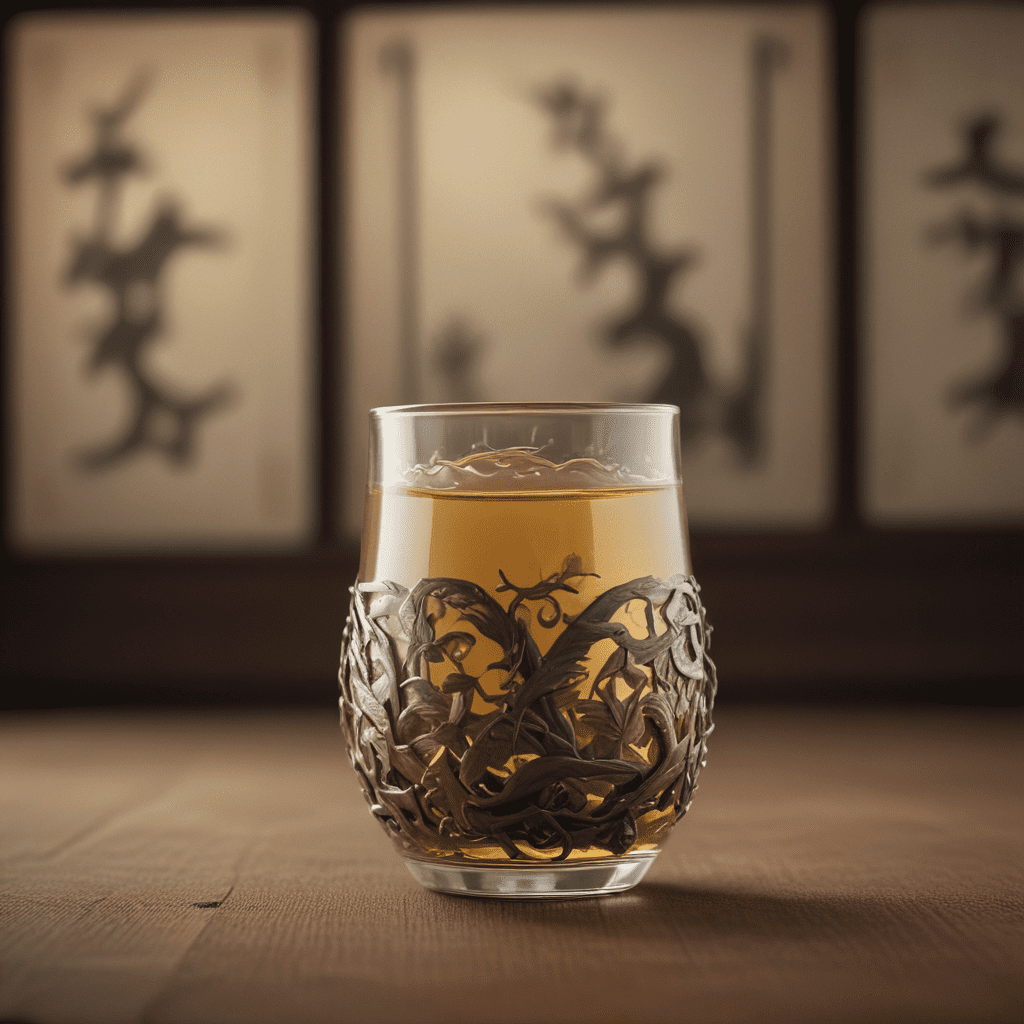The Cultural Heritage of Chinese Tea: An Ode to Tradition
I. Historical Origins
Tea, an ancient beverage with a rich history dating back thousands of years, holds a profound significance in Chinese culture. Its origins are shrouded in myth and legend, but the most widely accepted account traces its discovery to the legendary Emperor Shen Nong in 2737 BC. As the story goes, the emperor, while testing the medicinal properties of wild plants, accidentally discovered the invigorating effects of tea when leaves from a Camellia sinensis tree blew into his boiling water. This serendipitous encounter marked the birth of tea culture in China, which has since flourished for centuries.
II. The Significance of Tea in Chinese Culture
Tea has woven itself into the very fabric of Chinese society. It is not merely a beverage but an integral part of daily life, social interactions, and religious ceremonies. Over the centuries, it has become a symbol of hospitality, harmony, and elegance. The act of sharing tea transcends mere consumption; it is an opportunity to connect, forge relationships, and show appreciation. Tea has also played a significant role in Chinese literature, art, and philosophy, inspiring countless poems, paintings, and philosophical treatises that extol its virtues and celebrate its cultural importance.
III. The Ceremony of Tea
The Chinese tea ceremony, known as gongfu cha or gong fu cha, is an elaborate ritual that elevates the simple act of brewing and drinking tea into an art form. Developed during the Song Dynasty (960–1279), the ceremony is steeped in tradition and symbolism. It involves a meticulously choreographed sequence of movements, from the selection and preparation of the tea leaves to the pouring of the water and the serving of the finished brew. Every gesture and every detail is imbued with meaning, reflecting the deep respect and appreciation for tea that is inherent in Chinese culture.
IV. Tea as a Symbol of Hospitality and Ritual
In China, offering tea to guests is a gesture of respect and hospitality. It is a way to show appreciation, welcome visitors, and foster a sense of community. Tea is also an integral part of many Chinese rituals and ceremonies, including weddings, funerals, and religious festivals. In these contexts, tea serves as a symbol of connection, continuity, and remembrance. It is a way to honor the past, celebrate the present, and express hope for the future.
V. The Health Benefits of Tea
Beyond its cultural and social significance, tea has long been recognized for its health-promoting properties. Traditional Chinese medicine has extolled the virtues of tea for centuries, using it to treat a wide range of ailments. Modern scientific research has confirmed many of these traditional beliefs, demonstrating that tea contains a wealth of antioxidants and other beneficial compounds that may support overall well-being. Studies have linked tea consumption to a reduced risk of cardiovascular disease, stroke, and certain types of cancer. It has also been shown to improve cognitive function, boost metabolism, and support a healthy immune system.
VI. The Economic Impact of Tea
Tea has had a profound impact on the economy of China for centuries. It is one of the country's most important agricultural products, contributing significantly to its gross domestic product (GDP). Tea cultivation provides employment for millions of people in rural areas, supporting livelihoods and sustaining communities. The export of tea has also played a vital role in China's economy, connecting it to global markets and fostering cultural exchange.
VII. The Varieties and Characteristics of Chinese Teas
China is home to a vast array of tea varieties, each with its unique flavor profile, aroma, and brewing characteristics. These varieties can be broadly classified into six main types: green tea, black tea, oolong tea, white tea, yellow tea, and dark tea. Each type is distinguished by its processing method, which influences its color, flavor, and caffeine content. Green tea, for example, is made from unoxidized leaves and has a light, refreshing taste, while black tea is made from fully oxidized leaves and has a bolder, more robust flavor.
VIII. The Art of Tea Production
The production of Chinese tea is a complex and time-honored process that requires skill, experience, and a deep understanding of the tea plant. From the cultivation of the tea bushes to the harvesting and processing of the leaves, each step is carefully orchestrated to ensure the highest quality and flavor. The art of tea production has been passed down through generations of tea masters, who have refined and perfected their techniques over centuries.
IX. Tea as a Source of Cultural Identity
Tea is deeply intertwined with Chinese culture and identity. It is a symbol of tradition, harmony, and refinement. The act of sharing tea is a way to connect with others, foster relationships, and express cultural values. Tea is also a source of inspiration for Chinese artists, writers, and philosophers. It has been immortalized in countless works of art, literature, and music, reflecting its profound influence on the Chinese psyche.
X. The Future of Tea in Chinese Culture
As China continues to evolve, tea remains an integral part of its cultural heritage. While the way tea is consumed and enjoyed may change with time, its significance as a symbol of tradition, hospitality, and well-being will endure. The future of tea in Chinese culture is bright, as new generations embrace its timeless qualities and find new ways to appreciate its rich history and cultural legacy.
FAQs
Q: What is the national drink of China?
A: Tea is considered the national drink of China.
Q: What is the most popular type of tea in China?
A: Green tea is the most popular type of tea in China.
Q: What are the health benefits of drinking tea?
A: Tea contains antioxidants and other beneficial compounds that may support overall well-being, including reducing the risk of cardiovascular disease, stroke, and certain types of cancer.
Q: How is tea traditionally prepared in China?
A: Tea is traditionally prepared in China using a gongfu cha ceremony, which involves a meticulously choreographed sequence of movements and gestures.
Q: What is the significance of tea in Chinese culture?
A: Tea is deeply intertwined with Chinese culture and identity, symbolizing tradition, harmony, and refinement.


